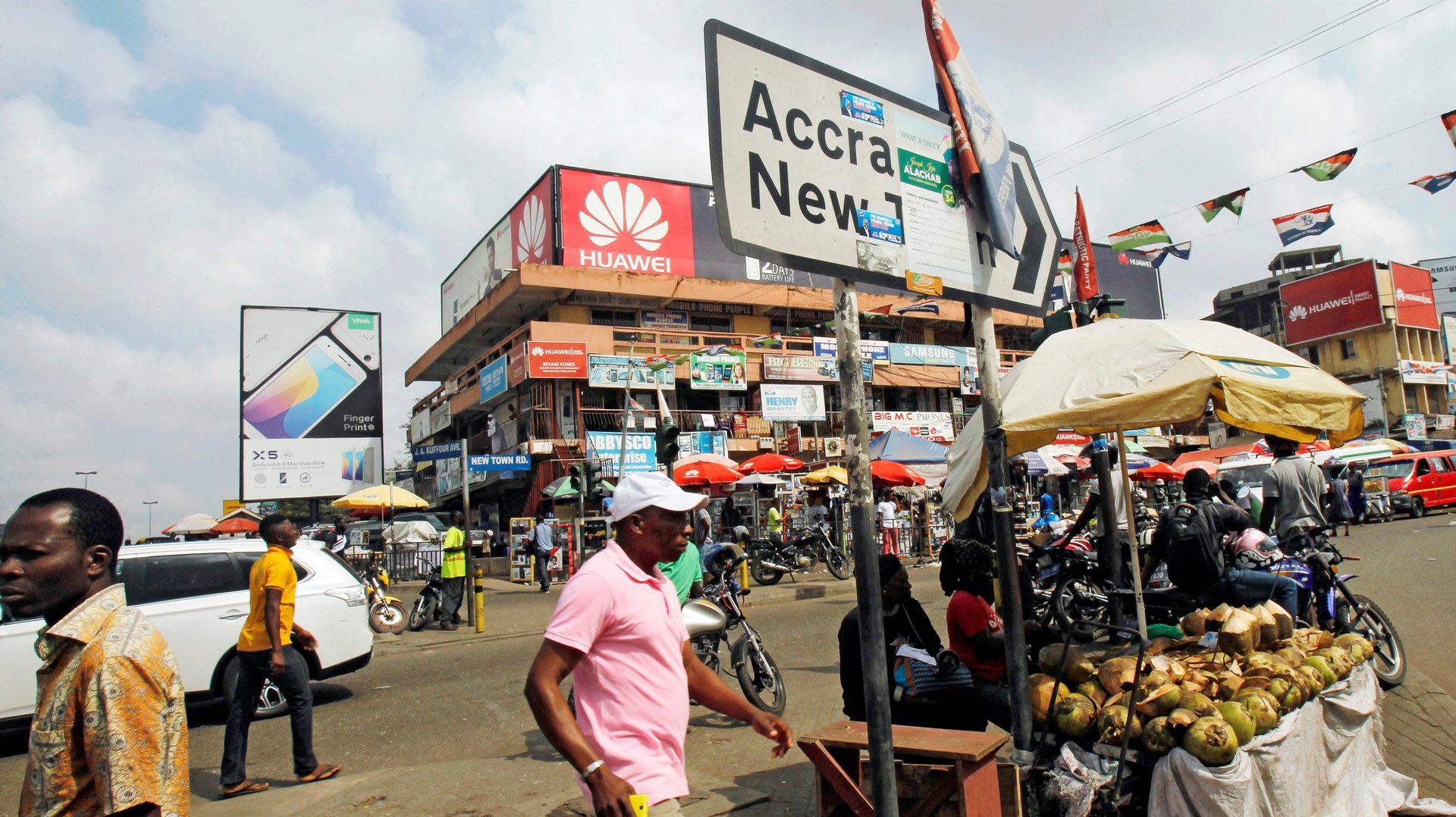Ghana’s lawmakers got into a fight over a proposed tax on electronic transactions
Tensions between lawmakers in Ghana over a proposed tax on electronic transactions led to a brawl on the floor of parliament on Monday (Dec. 20.)


Tensions between lawmakers in Ghana over a proposed tax on electronic transactions led to a brawl on the floor of parliament on Monday (Dec. 20.)
Videos of the incident show a rowdy session during a vote on the 1.75% fee on electronic transactions introduced by president Nana Akufo Addo’s government. The levy was set to take effect on Feb. 1 2022, but members of the opposition staged a walkout when it was proposed in November, and vowed to keep fighting it “because it will inflict hardship on the core poor of the Ghanaian people,” as Haruna Iddrisu, the minority leader, said two weeks ago.
That stance reached a violent head yesterday. Though they wore face masks amidst a spreading omicron variant that led the government to impose strict vaccination guidelines, a handful of male lawmakers threw punches and shoved each other around the speaker’s desk. The affair lasted a few minutes without interference from security personnel.
What’s the controversy around Ghana’s e-levy?
Ghana has been one of Africa’s fastest-growing mobile money markets for the last half decade. The value of digital transactions grew from 78 billion cedi ($12.5 billion) in 2016 to over 500 billion cedi (about $81 billion) in 2020, according to finance minister Ken Ofori-Atta. This growth is an opportunity for the government to raise 6.9 billion cedi ($1.12 billion) and boost GDP by 16% in 2022.
The proposed levy, if passed, will affect mobile money payments, bank transfers, merchant payments, and remittances into Ghana. The fee will be paid by those originating the transaction, except for inward remittances where the recipient pays. Users would have no option but to pay, considering mobile money’s widespread use in the country as a better alternative to cash.
But politicians in the minority were not going to let it slide. Hours before the scheduled vote yesterday, the finance committee’s ranking member, Ato Forson, somewhat foretold the scenes that eventually broke out. “I want to say that we in the Minority will take the fight to the plenary. We will fight for the ordinary Ghanaian and will ensure that the e-levy dies,” he said.
What happens next?
A vote will have to be held somehow to move the 2022 budget ahead, but outcomes remain unclear in a tense political atmosphere. Ghana has had a hung parliament since Dec. 2020, a recurring obstacle to Akufo Addo’s New Patriotic Party (NPP.)
Meanwhile, sentiments on the streets are negative towards the e-levy. The Mobile Money Agents’ Association of Ghana, whose members operate shops that enable mobile money transactions, plan to express their displeasure by starting a strike on Dec. 23. “We see this levy as very regressive and critical to the survival of our businesses,” the association said.
Sign up to the Quartz Africa Weekly Brief here for news and analysis on African business, tech, and innovation in your inbox.